Published Books
Edited by Ranjita Shegokar
Drug Delivery Landscape in Cancer Research examines the combined impact of prevention, diagnosis and treatment of cancer. With a strong focus on the status, challenges, and prospects of cancer drug delivery technology, the book also examines the clinical translation-related knowledge and the development of different organ related cancers. In 22 chapters this book describes the current and new drug delivery systems in twenty different cancer, it gives insight drug delivery strategies and tumour microenvironment management in oral and ocular cancers. This book is a timely and valuable resource for health professionals, scientists and researchers, health practitioners, students, and all those who wish to broaden their knowledge in the allied field. “Drug Delivery Landscape in Cancer Research” is written by experts in the field and informed with facts directly from manufacturers. Pharmaceutical scientists, medical researchers, biomedical engineers and clinical professionals will find this an essential reference.
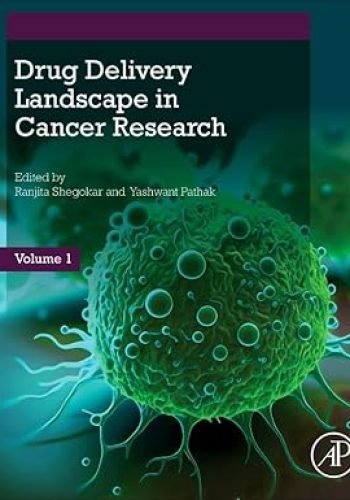
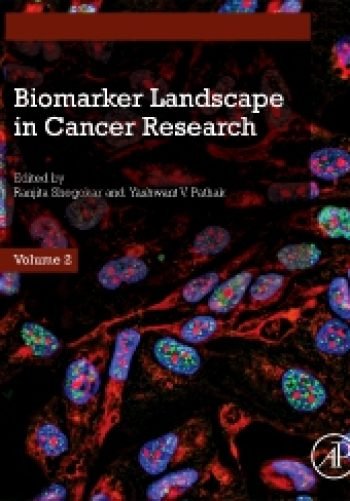
Edited by Ranjita Shegokar
Biomarker Landscape in Cancer Research examines the impact of early detection, predication of aggressiveness, and the determination of the best treatment for cancers. With a strong focus on the status, challenges, and prospects of biomarker measurements’ tools and technology, the book also examines clinical translation-related knowledge and the prognosis of different organ related cancers. In 21 chapters, it describes current and new diagnostic tools in twenty different cancers and explores how innovations in the cancer diagnostic space could make cancer screening and early detection more straightforward.
This book is a timely and valuable resource for health professionals, scientists and researchers, health practitioners, students, and all those who wish to broaden their knowledge in the allied field.
Edited by Ranjita Shegokar
Diagnostic Landscape in Cancer Landscape examines the combined impact of prevention, diagnosis, and treatment of cancer. With a strong focus on the status, challenges, and prospects of diagnostic tools and technology, the book also examines the clinical translation-related knowledge and prognosis of different organ related cancers. In 22 chapters, the book describes current and new diagnostic tools in twenty different cancers and explores how innovations in the cancer diagnostic space could make cancer screening and early detection more straightforward.
This book is a timely and valuable resource for health professionals, scientists, researchers, health practitioners, students, and all those who wish to broaden their knowledge in the allied field.
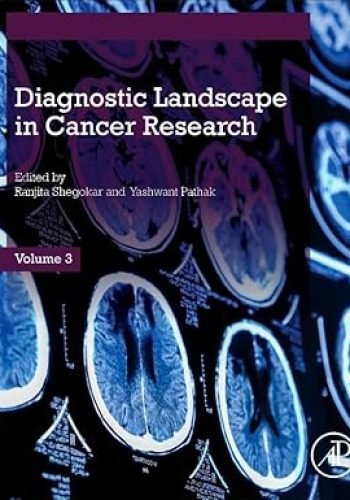
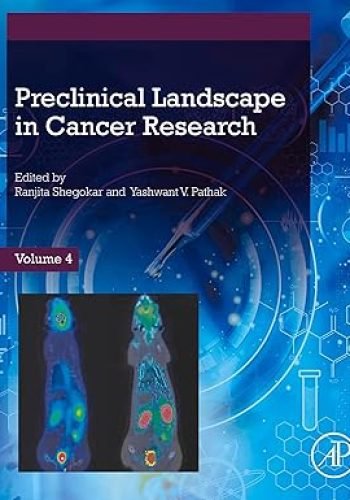
Edited by Ranjita Shegokar
Preclinical Cancer Landscape discusses the issues in preclinical-to-clinical translatability of molecularly targeted cancer therapies and the need to better align tumour biology in patients With a strong focus on the status, challenges, prospects and the need of robustness of preclinical cancer research, the book acknowledges that the bar for reproducibility in performing and presenting preclinical studies must be raised to facilitate a transparent discovery process that frequently and consistently leads to significant patient benefit.
Edited by Ranjita Shegokar
Clinical Landscape book presents an in-depth analysis of the evolving cancer treatment ecosystem. The book highlights key advances in diagnostics, targeted therapies, and biomarker-driven approaches. It delves into innovative treatment strategies like immunotherapy, nanomedicine, and gene-based therapies. Emphasizing translational research, the book connects lab findings with real-world clinical practice. It also discusses regulatory pathways, drug development challenges, and patient-centric care. Each chapter is authored or reviewed by experts in oncology, ensuring scientific rigor. Case studies and real-life examples make complex concepts accessible. The book reflects the global shift toward precision and personalized medicine. It serves as a valuable resource for healthcare professionals, researchers, and students.
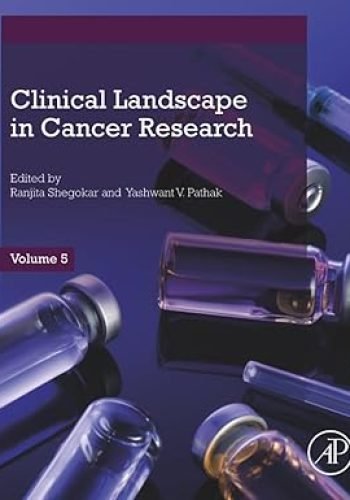

Edited by Ranjita Shegokar
Edited by Ranjita Shegokar


Edited by Ranjita Shegokar
Edited by Ranjita Shegokar


Edited by Ranjita Shegokar
Edited by Ranjita Shegokar


Edited by Ranjita Shegokar
Edited by Ranjita Shegokar


Edited by Ranjita Shegokar
Edited by Ranjita Shegokar
The scientific development of manufactured nanomaterials for drug delivery is increasing rapidly. One of the most prominent applications is topical drug delivery, where cutaneous, ocular, and nasal exposure becomes even more relevant. These targets are the first barrier that nanoparticles encounter when in contact with the human body. The contributors addresses a representative set of the broad spectrum of nanopharmaceuticals currently being used, including cationic lipid nanoparticles, polymeric PLGA, PLA nanoparticles, biomacromolecules-based nanoparticles, and other scaffolds tissue engineered skin substitutes. Regulation and risk is also covered, since the safety of these nanophamaceuticals still represents a barrier to their wide innovative use.
“Emerging Nanotechnologies in Immunology: The Design, Application and Toxicology of Nanopharmaceuticals and Nanovaccines” Edited by Shegokar R., and Souto E.B. Elsevier Int publishing house, ISBN (Hardcover). 9780323400169 / ebook – 9780323401135 (May 2018)


Edited by Ranjita Shegokar
The series Expectations and Realities of Multifunctional Drug Delivery Systems examines the fabrication, optimization, biological aspects, regulatory and clinical success of wide range of drug delivery carriers. This series reviews multifunctionality and applications of drug delivery systems, industrial trends, regulatory challenges and in vivo success stories. Throughout the volumes discussions on diverse aspects of drug delivery carriers, such as clinical, engineering, and regulatory, facilitate insight sharing across expertise area and form a link for collaborations between industry-academic scientists and clinical researchers.
Multifunctional Drug Delivery systems: Expectations and Realities, Ranjita Shegokar (editor) Volume 1 – Nanopharmaceuticals, Elsevier Int (Q1/2020) ISBN 9780128177785.
Edited by Ranjita Shegokar
This book connects formulation scientists, regulatory experts, engineers, clinical experts and regulatory stakeholders. This level of discussion makes it a valuable reference resource for researchers in both academia and the pharmaceutical industry who want to learn more about the status of drug delivery systems.
Multifunctional Drug Delivery:Expectations and Realities, Ranjita Shegokar (editor), Volume 2 – Delivery of Drugs, Elsevier Int (Q1/2020) ISBN 9780128177761.


Edited by Ranjita Shegokar
The series Expectations and Realities of Multifunctional Drug Delivery Systems examines the fabrication, optimization, biological aspects, regulatory and clinical success of wide range of drug delivery carriers. This series reviews multifunctionality and applications of drug delivery systems, industrial trends, regulatory challenges and in vivo success stories. Throughout the volumes discussions on diverse aspects of drug delivery carriers, such as clinical, engineering, and regulatory, facilitate insight sharing across expertise area and form a link for collaborations between industry-academic scientists and clinical researchers.
Multifunctional Drug Delivery: Expectations and Realities, Ranjita Shegokar (editor), Volume 3 – Drug Delivery Trends, Elsevier Int (Q1/2020) ISBN 9780128178706.
Edited by Ranjita Shegokar
The series Expectations and Realities of Multifunctional Drug Delivery Systems examines the fabrication, optimization, biological aspects, regulatory and clinical success of wide range of drug delivery carriers. This series reviews multifunctionality and applications of drug delivery systems, industrial trends, regulatory challenges and in vivo success stories. Throughout the volumes discussions on diverse aspects of drug delivery carriers, such as clinical, engineering, and regulatory, facilitate insight sharing across expertise area and form a link for collaborations between industry-academic scientists and clinical researchers.
Multifunctional Drug Delivery: Expectations and Realities, Ranjita Shegokar (editor), Volume 4 – Drug Delivery Aspects, Elsevier Int (Q1/2020) ISBN 9780128212226.








